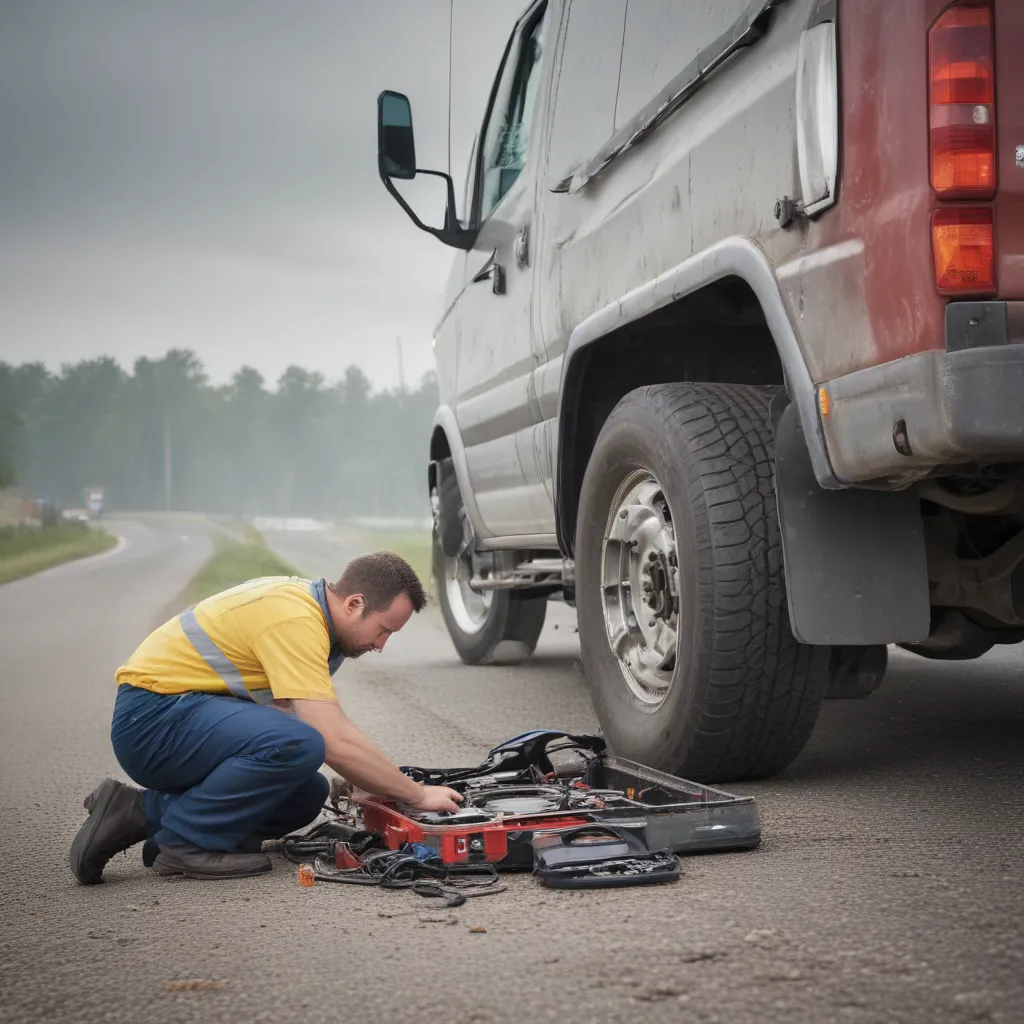
The Perils of an Unpredictable Ride
Ah, the joys of hitting the open road in your trusty recreational vehicle (RV) or fleet vehicle – the wind in your hair, the open highway stretching out before you, and the promise of adventure on the horizon. But let me tell you, my friends, it’s not all sunshine and rainbows. One minute you’re cruising along, belting out your favorite tunes, and the next, you’re pulled over on the side of the road, steam billowing from under the hood, wondering how in the world you’re going to get back on the road.
You see, that’s the thing about these machines of ours – they’re complex, temperamental beasts, and they have a way of breaking down at the most inopportune moments. And let me tell you, being stranded on the side of the road is no picnic, especially when you’re miles from the nearest town, with no mechanic in sight.
The Importance of Regular Diagnostics
Now, I know what you’re thinking – “But I take my vehicle in for regular maintenance!” And that’s great, really, it is. But let me ask you this: when was the last time you had a comprehensive diagnostic check-up on your RV or fleet vehicle? If you’re like most folks, the answer is probably “Uh, I don’t know.” And that, my friends, is where the problem lies.
You see, regular diagnostic testing is the key to keeping your vehicle running smoothly and preventing those dreaded roadside breakdowns. It’s like going to the doctor for a check-up – you want to catch any potential issues before they become full-blown problems, right? Well, the same principle applies to your RV or fleet vehicle.
The Benefits of Proactive Maintenance
By taking your vehicle in for regular diagnostic testing, you’re not only preventing breakdowns, but you’re also saving yourself a whole lot of time, money, and stress. Think about it – when was the last time you had to call a tow truck because your RV or fleet vehicle died on the side of the road? It’s not exactly a fun experience, is it? And let’s not forget the cost of the tow, the repairs, and the time you had to take off work to deal with it all.
But when you stay on top of your vehicle’s maintenance and diagnostics, you’re able to catch any issues early on and nip them in the bud before they turn into major problems. And let me tell you, that’s a whole lot more enjoyable than being stranded on the side of the road, waiting for a tow truck to come rescue you.
The Diagnostic Process Explained
Now, I know what you’re thinking – “Okay, but what exactly does this ‘diagnostic testing’ thing entail?” Well, let me break it down for you.
When you take your RV or fleet vehicle in for a diagnostic check-up, the technicians will use specialized tools and equipment to thoroughly inspect every nook and cranny of your vehicle. They’ll check the engine, the transmission, the electrical system, the brakes, the suspension, and everything in between. They’ll be looking for any signs of wear and tear, any potential issues that could be lurking under the surface.
And the best part? They’ll be able to catch these problems before they turn into bigger, more expensive issues down the road. Imagine being able to replace a worn-out part before it completely fails, or fixing a minor issue before it leads to a full-blown breakdown. It’s like having a crystal ball that lets you see into the future of your vehicle’s health.
The Diagnostic Difference
But don’t just take my word for it – let me share a real-life example of how regular diagnostic testing can make all the difference.
A few years back, I had a client who was the owner of a large fleet of delivery vans. He was a pretty no-nonsense kind of guy, and he was always looking for ways to cut costs and optimize his operations. So, when I suggested that he start implementing regular diagnostic testing for his fleet, he was a bit skeptical at first.
“Why do I need to spend all that money on testing when my vehicles are running just fine?” he asked.
But I urged him to give it a try, and let me tell you, he was glad he did. Within the first few months of regular testing, the technicians were able to identify a handful of issues that were just starting to develop, everything from worn-out brakes to a faulty alternator. By addressing these problems early on, my client was able to avoid major breakdowns, keep his fleet on the road, and save a ton of money in the long run.
And the best part? His drivers were happier, too. No more being stranded on the side of the road, waiting for a tow truck to come rescue them. Instead, they could focus on their routes, knowing that their vehicles were in tip-top shape.
The Bottom Line
Look, I get it – regular diagnostic testing might not be the most exciting part of owning an RV or managing a fleet of vehicles. But trust me, it’s an investment that’s worth its weight in gold. By staying on top of your vehicle’s maintenance and catching any issues before they become major problems, you’re not only preventing those dreaded roadside breakdowns, but you’re also saving yourself a ton of time, money, and stress in the long run.
So, what are you waiting for? Head on over to https://orangecountyrvrepair.com/ and schedule your diagnostic check-up today. Your future self (and your wallet) will thank you!
